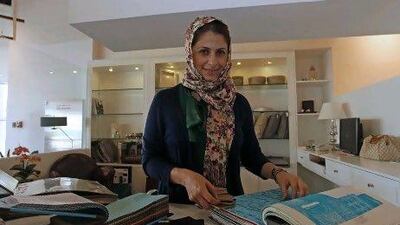Asma Darwish spends hours poring over sketches and "mood boards" with clients before redecorating and refurbishing their apartments and villas in the UAE. The interior design consultant for Indigo Living discusses a day in her life.
6.30am
I usually wake up by this time. However, as I am currently preparing for a triathlon I sometimes have to be up by 5.30am for my swim training. My morning routine is very important: I shower, prepare my breakfast and head to a coffee shop for a nice and peaceful cup of coffee and to read the papers before my busy day starts.
Between 8.30 and 9am
I arrive to work, check my emails, create a list of what needs to be done, follow up with phone calls and site visits and plan my day.
10am
On Sunday mornings we have our sales meeting to discuss our current clients, new inquiries, challenges, ideas and how can we serve our customers better.
Between 1 and 2pm
Lunch. Home is very close, so sometimes I head home or grab a healthy bite from the closest place. There are days that I plan to go to the gym during my lunch hour. I usually don't arrange lunch meetings as I prefer to always keep the formalities with my clients.
Afternoon
I love designing in the afternoons and early evenings, as I feel most creative during that time. The materials, fabrics and the overall look always depend on the concept and ideas that I communicate with clients through meetings, pictures, mood boards, sketches, etc. And, of course, it always depends on the client's requirements, budget and time. I always try to educate clients to bring in a bit of culture from where they live into their living environments and make sure their homes represent who they are and their personalities. I cannot say that I like or specialise in one style; the real art is mixing and matching different styles and being very creative with it.
Late afternoon
In the afternoons, I also do daily research online and in magazines and books to ensure that I know what is happening in design all around the world. I make sure to respond to all my emails before leaving the office, read through my list of tasks, mark what has been done and plan my next day. [I also] have a quick chat with my colleagues.
Between 6.30 and 7pm
I usually leave work. I can be home in a few minutes so on the way I usually stop by the grocery store or meet my friends to unwind, watch a movie and catch up.
Evening
At home I spend time with my family, have a light dinner, watch TV and then have my "me" time.
By 10pm
I am a curious person and I always have unanswered questions, so just before bed is the perfect time to research them and find the answers. I also read a lot before sleeping.
Between 10.30 and 11.30pm
The usual time for me to end my day.
* Neil Parmar

